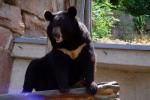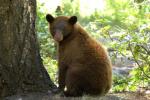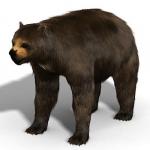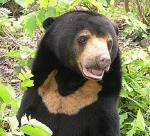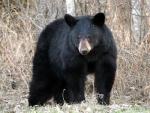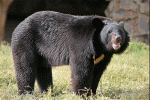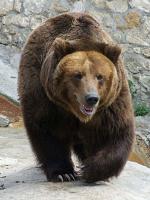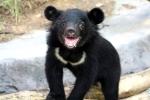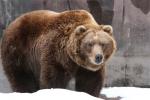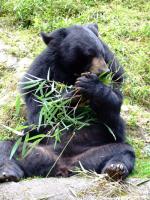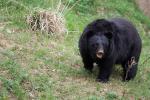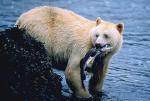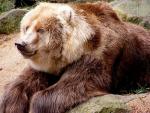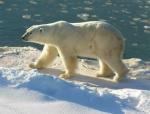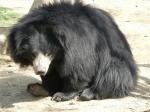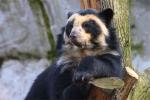| Dog | Cat | Horse | Cow | Sheep | Goat | Pig |
| Donkey | Tiger | Wild Cat | Wolf | Bear | Fox | Birds |
A Long Winters NapOne of the first things you might think about when you talk bears is hibernation. Bear hibernation is different than most hibernating animals. In fact, many scientists would not even classify it as hibernation. True hibernation (like we see in ground squirrels) involves a drastic drop in body temperature but the hibernating animal will awaken occasionally to go to the bathroom and have a bite to eat before resuming hibernation. When a bear 'hibernates' it is really in a deep sleep. It's body temperature drops but not drastically and it does not wake up...not even to go to the bathroom or get some food. The one exception is that a mother bear will wake up to give birth to her cubs in January or February. Why would a bear want to sleep so long? After all you might miss something right? But that is just the point. Since food is scarce in the winter bears figure that if you can't eat you might as well sleep. Bears that live in colder northern regions sleep in their dens right through the winter. In some cases as long as seven months. Once spring arrives, the bear (and possibly some cubs) will emerge from the den with a big appetite. It is important to note that not all species of bear will hibernate. Bears like the Asiatic Bear live in warmer climates where food is readily available all year long and there is not need to hibernate. |
|
|
|
|
